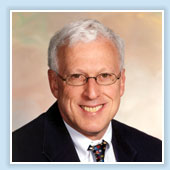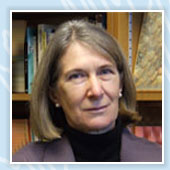



|


|


|


|


|


|


|


|
Robert J. Sternberg
Robert J. Sternberg is Dean of the School of Arts and Sciences and Professor of Psychology at Tufts University. He was previously IBM Professor of Psychology and Education in the Department of Psychology, Professor of Management in the School of Management, and Director of the Center for the Psychology of Abilities, Competencies, and Expertise at Yale. The Center, soon to be relocated to Tufts, is dedicated to advancing the notion of intelligence as modifiable and capable of development throughout the life span. The Center seeks to have an impact on science, education and society.
Professor Sternberg is best known for his investment theory of creativity (developed with Todd Lubart, with whom he authored Defying the Crowd: Cultivating creativity in a culture of conformity), the theory of successful intelligence, the theory of thinking styles as mental self-government, the balance theory of wisdom, the WICS theory of leadership, and for his duplex theories of love and hate. His research has taken him to five continents, where he has studied the relationship between culture and competence. He has published more than 1100 journal articles, book chapters, and books, and has received over $20 million in government and other grants and contracts for his research. The APA Monitor on Psychology lists him as one of the top 100 psychologists of the 20th century. He was the 2003 President of the American Psychological Association.
Caroline Baillie
Caroline Baillie is the Dupont Canada Chair of Engineering Education Research and Development at Queens University, Kingston, Ontario. Her role is to enhance the learning experience of engineering students across the Faculty. Between May 2000 and 2003, she was Senior Lecturer in Engineering and Deputy Director of the UK Centre for Materials Education (UKCME) based in Liverpool - part of the national HEFCE-funded Learning and Teaching Support Network. Previously she worked at Imperial College, within the Department of Materials and also as a Lecturer in the Education Department, setting up the foundations of the Imperial College Centre for Education Development. Her work in the UKCME since 2000 involved running national workshops and teaching development grant schemes for Materials Educators as well as personal consultation work with academic staff from over forty departments. Dr Baillie also directed a large consortium FDTL programme to study the 'tutorial' system within materials subject areas. She has over 100 publications in materials science and education and is the author of four books on teaching and learning. Her recent publications include, Travelling Facts: the Social Construction, Distribution and Accumulation of Knowledge and Effective Learning and Teaching in Engineering.
Mary Evans
Professor Mary Evans has taught Sociology and Women's Studies at the University of Kent since 1971. She is the author of numerous books on feminism, including Gender and Social Theory (Open University Press) and feminist writers, including two books on Simone de Beauvoir, but has also written on aspects of social history and intellectual history. One of her most consistent interests has been in the work of Jane Austen (and she is at present working on an interpretation of Austen as a radical writer) but this work has been interrupted by disquiet, and indeed disenchantment, about contemporary developments in higher education. This interest resulted in Killing Thinking: The Death of the Universities, which was published in 2005. Further material for this book is all too easy to find and may result in another study of the impact of educational bureaucracies and marketisation on creativity.
Kevin Byron
Kevin Byron received his doctorate from the University of Hull and spent many years in research in the private sector. More recently he was awarded a Research Fellowship with The National Endowment for Science, Technology and the Arts (NESTA) for studies of creativity in education and the development of resources for nurturing creativity. He has designed and delivered workshops and lectures on creativity and creative problem-solving to schools, businesses and higher education institutions in the UK, USA, Canada and Italy. Dr Byron is a visiting SeniorFellow of the Higher Education Academy at the University of Hull and Fellow of The Institute of Physics.
Russell Foster
Russell Foster is (from May 2006) Professor of Circadian Neuroscience within the Medical Faculty at the University of Oxford. He leads a team of researchers who are investigating how biological clocks (circadian rhythms) are generated and regulated. He is also studying the impact of abnormal sleep/wake patterns in patients with mental health conditions. For his work in this field he has been awarded the Honma prize (Japan), Cogan award (USA), Zoological Society Scientific Medal (UK) and the Edridge-Green Medal by the Royal College of Ophthalmologists (UK). His book about the biology and medical implications of circadian rhythms, Rhythms of Life, was published in 2004 to great critical acclaim.
Professor Foster’s science education activities also include working with musicians to enhance science education in schools. He has developed science education projects with Children’s Music Workshop, Fundació ‘la Caixa’ in Barcelona, and The Orchestra of the Age of Enlightenment (OAE) in London. He recently devised a teaching package to convey the concepts of ‘variation & selection’ in both biology and music. He is currently serving on the Fellowship Programme Committee of the National Endowment for Science Technology and the Arts (NESTA).
Fred Buining
Fred Buining is a freelance consultant working in the world of organizational development and transformation and specializing in creative thinking techniques. He has worked with a wide range of clients including SNB Bank, ING Bank, Philips marketing, VNU publisher, Barry Callebaut chocolate, IFF, UnivÈ insurances, City of Rotterdam, Port of Rotterdam authorities, Novartis pharmaceuticals, Belgacom, C&A clothing, FNV union, Solvay pharmaceuticals, FCI electronic components and Progress Software and the Higher Education Academy. He runs an interactive creative thinking sessions around the idea of changing organizational and system cultures.
John Wyn Owen
Before taking up his present post as chair of UWIC’s governors, John Wyn Owen was Secretary of the Nuffield Trust in the UK and Senior Associate of the Judge Institute of Management of the University of Cambridge. He took up the post of Secretary of the Nuffield Trust in 1997, having previously been Director General of New South Wales Health in Australia and until 1994, Director of NHS Wales in the UK. He was formerly Chairman of the Australian Health Ministers' Advisory Council. He is an Honorary Fellow of the Faculty of Public Health Medicine, Honorary Member of the Royal College of Physicians, and Fellow of the University of Wales Colleges, the Australian College of Health Service Executives, and the RSA and a Member of the US National Academy of Sciences Institute of Medicine.
Railroad Bill
Railroad Bill play a wide mix of blues, country, western swing, gospel, jazz and bluegrass styles. They have taken their tea chest bass, washboard, mandolin, ukulele, guitar, kazoo, musical saw, squeaky shark, roll of sellotape and indestructible lungs and legs to all parts of the world and beyond, challenging all forms of conformity as they go.